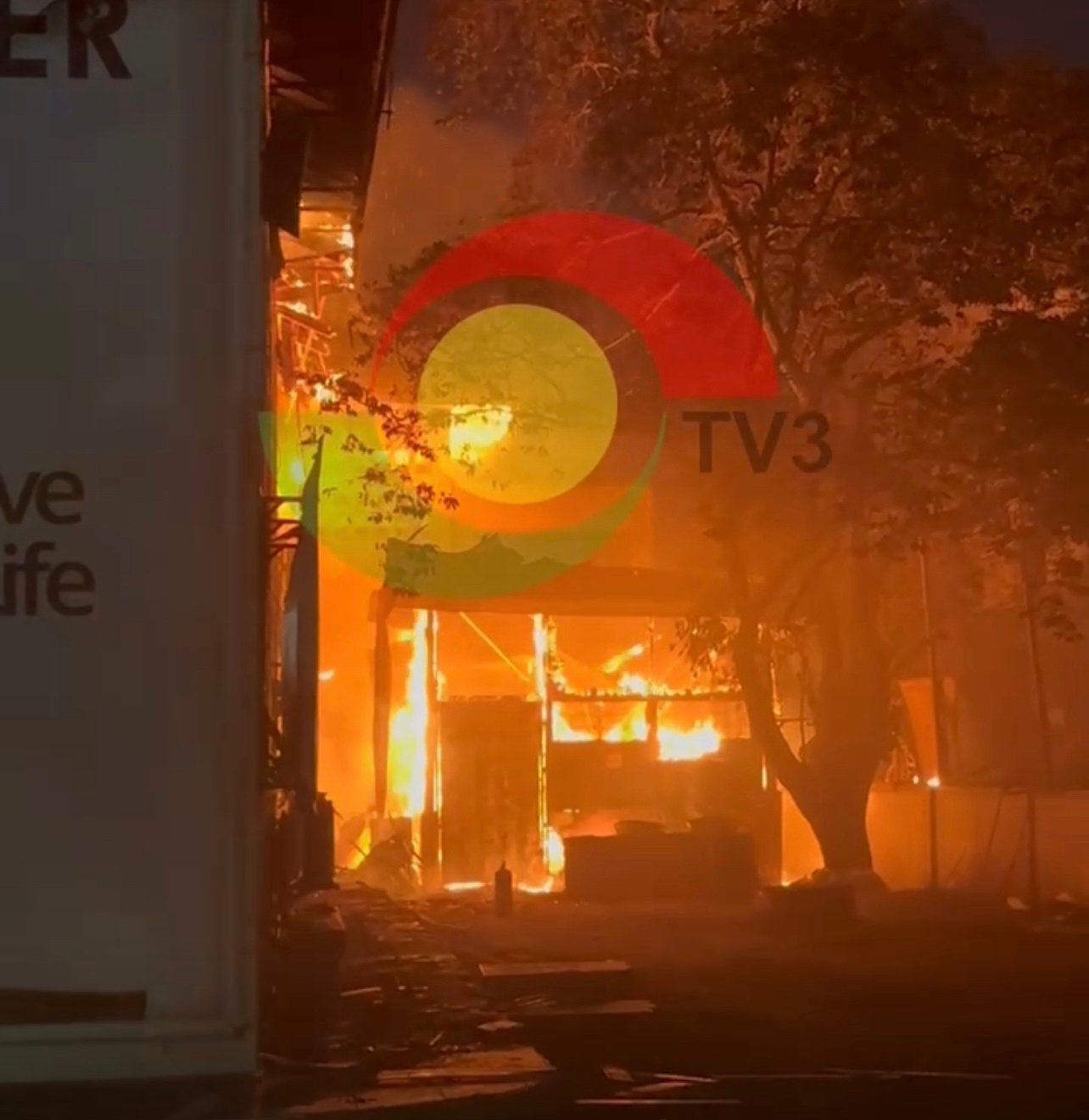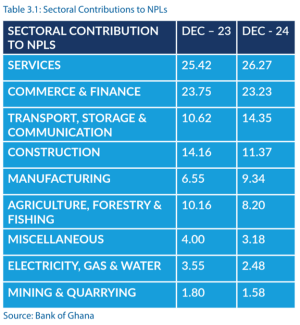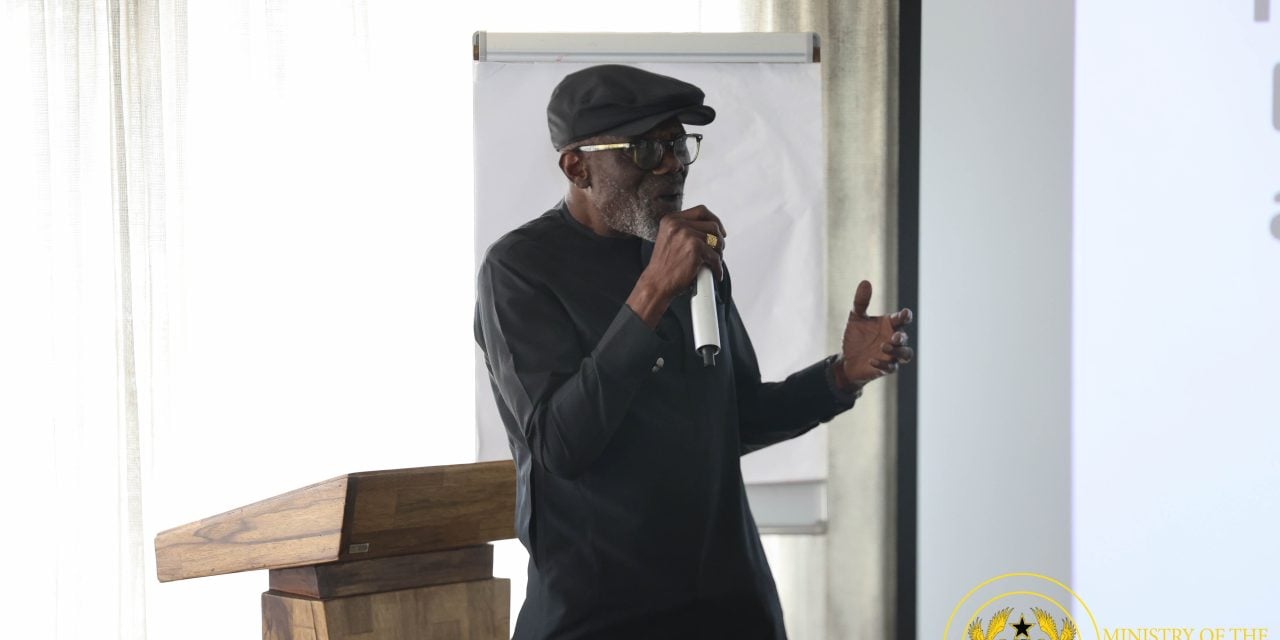-
Edging Towards the Abyss As the Nation Fails to Learn the Lessons of Its Past?
The author believes that the current challenges that Ghana is facing are largely due to the fact that the ruling elites have refused to learn from the past and continue making the same mistakes of opportunistic, short-sighted and divisive politics.
Fahamu 28th February 2019 -
Nkrumaists Must Challenge the Consolidation of the Busia-Danquah Political Ideology in Ghana
The author argues that the failure of the Ghanaian Left to build on the legacy of Kwame Nkrumah is giving a good opportunity to the centre-right ruling party to develop and cement its neo-liberal ideology.
Fahamu 25th January 2019 -
A Dying Civil Society Sector in the Midst of National Crisis
The article deplores the current situation of the civil society in Ghana where the sector seems to be silent on important national issues including the violation of women's rights and the plight of poor people.
Fahamu 04th October 2018 -
Pan-Africanists Meet in Accra to Discuss Strategies for Uniting Africa
In September 2018, leading pan-Africanists will gather in Accra, Ghana to celebrate the birthday of Osagyefo Doctor Kwame Nkrumah and to discuss ways of pushing the "Africa Must Unite" agenda.
Fahamu 26th July 2018 -
Farewell June Milne - a Tribute
Kwame Nkrumah's loyal and long-standing literary executive, June Milne passed away on 9 May 2018 at the age of 98. Of Australian origin, June was a staunch Pan-Africanist and committed to Nkrumah and ensuring his prolific writings were published. As Nkrumah grew ill in Guinea-Conakry where he lived following the coup of 24 February 1966 that ousted him from power, he wrote his will entrusting June Milne with the publication of all his writings. She took up this task with utmost quiet and steely
Fahamu 18th May 2018 -
Ghana Opposition Against United States Military Deal
The United States African Command's effort to deepen its penetration of the continent faces resistance; with the recent opposition coming from Ghana's opposition parties.
Fahamu 09th April 2018 -
Spirit Is Eternal - a Conversation With Filmmakers Dalian and Verona Spence-Adofo
The linking of our ancestors who are gone, ourselves here, those coming, our continuation, our flowing along our living way, the way: it is that remembrance that calls us. That remembrance not only birthed successive waves of global insurrection, but directed the everyday lives of millions of forcibly dislocated Africans.
Fahamu 09th February 2018 -
31 December 1981 - How the "IMF Baby" Betrayed Its Parents
The 31 December 2018 revolution in Ghana was a political upheaval that promised and had the potential to deliver a Castro/Sankara type social and political revolution, but was wasted on the rubbish heap of personality power grab fuelled by the ambitions of one man, the collective theft of national resources by a cabal of opportunists and nation wreckers who perpetuated their vile corrupt values on the rest of the nation.
Fahamu 09th February 2018 -
Politics, Human Rights and the Media in Ghana
The most important developments in the Fourth Republic that have facilitated and expanded media freedom and free speech are the introduction of independent and private broadcasting, the end of state monopoly and control of broadcasting, and the arrival of the new communications technologies of digital media and mobile telephony.
Fahamu 21st December 2017 -
The Accra Declaration - 2nd Kwame Nkrumah Pan African Intellectual and Cultural Festival
Reparatory Justice must be the clarion call of the African Peoples at home and abroad. This was the Declaration of the 2nd Kwame Nkrumah Intellectual and Cultural Festival which was held in Accra from 25 June to 1 July, 2017. The Festival was hosted by the Institute of African Studies of the University of Ghana under the auspices of the third Kwame Nkrumah Chair, Professor Horace Campbell.
Fahamu 21st July 2017 -
New Dawn for Social Activism in Ghana
Ghana's failed economic trajectory of market liberalisation has trapped the country in a cycle of export dependency based on primary commodities while destroying the domestic industry. A crash in living standards fuelled by high inflation has hit the poorest hardest. Now a new spirit of activism has emerged as a result of this crisis
Fahamu 19th September 2014 -
Mobilizing for a Successful 8th Pan African Congress in Accra
The 8th Pan African Congress will be held at the Accra International Conference Centre. Its main objective is to galvanise Pan African efforts towards Africa's renewal including its total socio-cultural and politico-economic independence, self-reliance and liberation
Fahamu 19th September 2014 -
Where Did We Go Wrong?
Should those who took Ghana to the IMF in 1983 be allowed near economic decision-making in Ghana today? The country that until recently was touted as an example of 'Africa rising' is now in dire straits
Fahamu 18th September 2014 -
Climate Change, Foreign Assistance and Food Sovereignty in Ghana
The debate in Ghana over the cultivation of genetically modified seeds provided by international aid agencies demonstrates that foreign aid often comes with an agenda determined by foreign financial and political backers, not by the end-users of the assistance.
Fahamu 25th July 2014 -
Halt the Passage of the Plant Breeders' Bill! - Religious Bodies
The religious organisations insist that Ghana's dwindling food production cannot be attributed to our non-usage of GMO technologies but due to poor access roads to farms, lack of credit, unavailability of ready market, lack of storage facilities and agricultural processing
Fahamu 25th July 2014 -
Ban All GM Foods in Ghana!
VG Food Sovereignty Ghana calls for an indefinite Moratorium or ban on the propagation, cultivation, raising, and growing of Genetically Modified Organisms in Ghana.
Fahamu 25th July 2014 -
Ghana - Public Views On Gmos, Seed Laws and Biosafety
BGG Food Sovereignty Ghana organized a capacity building and skills sharing workshop on 27-28 February to discuss the Biosafety Law, the Plant Breeders Bill and the Plant and Fertilizer Act (seed law). Civil society organizations, smallholder farmers, the media, scientists and concerned members of the public attended the meeting. Here are the thoughts that came out of the meeting
Fahamu 27th March 2014
-
Breaking: Paul Adom-Otchere, 2 others detained by OSPNews4 days ago
-
We all need stronger voices to challenge usGeneral News3 days ago
-
Ghana Airports cancels controversial Evatex contract after OSP invited Adom-OtchereGeneral News3 days ago
-
EPA Launches Online Continuous Emission Monitoring SystemGeneral News5 days ago
-
Ghana police rescue 16 human trafficking victims from Cote d’Ivoire and Burkina FasoGeneral News2 days ago
-
15 Church Youth Perish in Tragic Road Crash on Accra-Kumasi HighwayAshanti4 days ago
-
Office of the Registrar of Companies introduces 48-hour prestige registration serviceGeneral News2 days ago
-
Nutrifoods issues major Tasty Tom mix recall, following complaints, FDA directiveBusinessYesterday @ 01:00
-
Video: Fire breaks out at Accra Tourist Information CentreNewsYesterday @ 02:38
-
Services, commerce and finance top sectoral NPLs in 2024BusinessYesterday @ 03:00
-
Secret filming exposes the 'madams' involved in Kenya's child-sex tradeYesterday @ 00:10
-
Business leaders, companies honouredBusinessYesterday @ 00:06
-
Rubber tension: Why processing factories are struggling to secure supplyBusinessYesterday @ 04:00
-
Kenya looks to Zoomlion for innovative waste management solutionsHeadlinesYesterday @ 00:30
-
More than 50 migrants die off Yemen in boat capsizeYesterday @ 01:10















Facebook
Twitter
Pinterest
Instagram
Google+
YouTube
LinkedIn
RSS